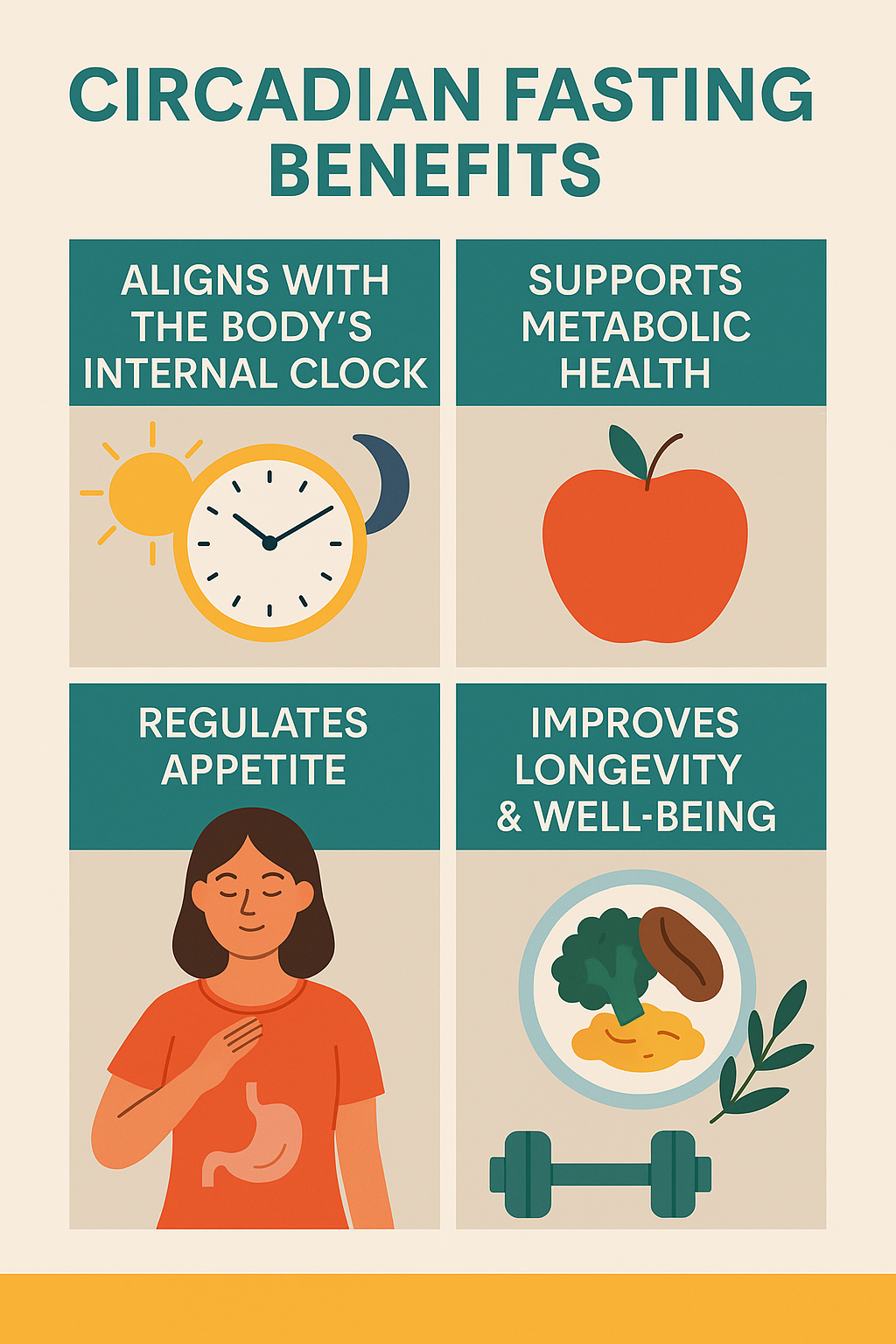Revamping Your Routine with the Circadian Fasting Pathway
What Is Circadian Fasting and Why Is It Different?
Circadian fasting isn’t just another fleeting diet trend—it’s a natural eating pattern that aligns with your internal body clock, or circadian rhythm. Unlike most intermittent fasting methods, circadian fasting focuses more on when you eat than on how much. It typically involves eating between 8 am and 6 pm, followed by a 12- to 16-hour overnight fast, giving your digestive system the downtime it needs.
How Does Circadian Fasting Work?
By consuming your calories during daylight hours, circadian fasting mirrors ancient eating patterns—think hunters and gatherers eating while the sun was out and resting when night fell. Thanks to modern life and artificial lighting, our natural rhythms have been thrown off course. This disruption affects everything from hormones and metabolism to sleep and recovery, making circadian fasting a great way to reset your internal clock.
Why Timing Matters More Than You Think
You might be wondering: is it really that important when we eat? According to science—yes! Studies show that eating earlier in the day allows your body to digest food more efficiently, stabilise blood sugar levels, and improve metabolic health. Eating late into the night, on the other hand, is linked to weight gain, sluggish digestion, and poor sleep.
The Benefits of Circadian Fasting for Health and Fitness
What Are the Benefits of Circadian Rhythm Fasting?
Circadian fasting has been associated with a range of powerful health benefits:
Reduced risk of type 2 diabetes, obesity, and heart disease
Improved cognitive function and mental clarity
Enhanced gut health and digestive performance
Better sleep quality and hormone balance
And yes, even your workouts can feel more energised when you’re in sync with your body’s natural rhythm.
Is Circadian Fasting Good for Weight Loss?
Absolutely. By avoiding late-night eating and reducing snacking windows, circadian fasting can naturally reduce calorie intake without feeling overly restrictive. Plus, when paired with regular exercise, it helps promote fat-burning, improve insulin sensitivity, and regulate appetite hormones like ghrelin and leptin.
What Can You Consume During the Fasting Window?
During your fasting period (typically overnight), you're encouraged to stay hydrated with:
Water
Herbal teas
Black coffee (no sugar or milk)
Green tea
These drinks support the fast without triggering an insulin response, keeping you in a fat-burning, recovery-focused state.
From a Personal Trainer’s Perspective: Time Is Fuel
As your trusty Scouse personal training mate, let me tell you—circadian fasting is a lifestyle, not just a shortcut to drop a few pounds. It’s about working with your body, not against it. I’ve seen clients boost their energy, sleep better, and train harder just by shifting their eating windows. It’s a small change with massive impact.
Eat With the Sun: Why Circadian Fasting Feels Natural
Ever noticed how eating late at night can leave you feeling bloated, wired, or wide awake when you should be winding down? That’s your natural clock fighting back. Circadian fasting helps you return to a way of eating that feels instinctive, reduces stress on the digestive system, and supports overall vitality.

Is Circadian Fasting Better Than 16:8 Intermittent Fasting?
While the popular 16:8 fasting method allows eating at any time within the 8-hour window, circadian fasting specifically prioritises eating during daylight hours. Early Time-Restricted Eating (eTRE), a form of circadian fasting, may offer greater metabolic benefits, including:
Lower blood pressure
Better glucose regulation
Reduced inflammation
How to Start Circadian Fasting: A Beginner’s Guide
Starting is simple:
Set your eating window between 8 am and 6 pm
Begin with a 12-hour fast (e.g., 6 pm to 6 am) and work up to 14–16 hours
Focus on whole, nutrient-dense foods during the eating period
Avoid caffeine or large meals close to bedtime
Stick with it for a few weeks and watch how your energy, digestion, and sleep improve.
Best Meals for a Circadian Fasting Lifestyle
During your eating window, focus on:
A high-protein breakfast (e.g., eggs, oats, Greek yogurt)
A balanced lunch with complex carbs and healthy fats
A light, early dinner with veggies and lean protein
Avoid sugar-laden snacks or caffeine after 3 pm to protect sleep quality
